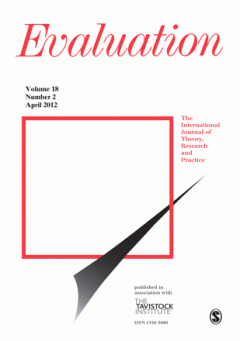Filter by

Women's entrepreneurship development initiatives in Lebanon : micro-achieveme…
In the aftermath of the Lebanese civil war, as part of their efforts to rebuild the national economy, many donor agencies and non-government organisations increased their efforts to support the goal of women's economic empowerment. However, the share of women-owned businesses in Lebanon has remained low, and women are mostly still limited to work in marginalised sectors of the economy where pro…
- Edition
- Volume 20, Issue 1, 2012, March 2012, pages 67-80
- ISBN/ISSN
- 13552074
- Collation
- -
- Series Title
- Gender & Development
- Call Number
- -

The Markets for Afghan Artisans approach to women's economic empowerment
This article describes the Markets for Afghan Artisans (MFAA) programme, delivered by Afghan non-government organisation, Zardozi, which has developed an effective approach to facilitating market access for very poor women in the informal, handcrafted garment industry, successfully addressing the multiple barriers faced by women, and developing full business cycle support, customised to their s…
- Edition
- Volume 20, Issue 1, 2012, March 2012, pages 81-94
- ISBN/ISSN
- 13552074
- Collation
- -
- Series Title
- Gender & Development
- Call Number
- -

Show the world to women and they can do it: Southern Fair Trade Enterprises a…
This article draws on research with women handicraft producers in Bangladesh in order to analyse processes of empowerment. It explores the practices and social relationships embedded in the activities of four Southern Fair Trade Enterprises (SFTEs). Attention is drawn to the kinds of change which the women producers feel they are achieving and how such change was linked to Fair Trade employment…
- Edition
- Volume 20, Issue 1, 2012, March 2012, pages 95-109
- ISBN/ISSN
- 13552074
- Collation
- -
- Series Title
- Gender & Development
- Call Number
- -

Fair Trade and organic certification in value chains : lessons from a gender …
Fair Trade and organic certification production of coffee and other commodities is popularly seen as beneficial to producers in many ways. However, gender analysis of Fair Trade is important for assessing the gains and losses for women and men specifically, which result from compliance with globally set codes of conduct. This article presents a case study of coffee production and trade in Ugand…
- Edition
- Volume 20, Issue 1, 2012, March 2012, pp 111-127
- ISBN/ISSN
- 13552074
- Collation
- -
- Series Title
- Gender & Development
- Call Number
- -

Beyond participation: making enterprise development really work for women
Oxfam has been involved in sustainable livelihoods and enterprise development since the 1960s, gaining practical experience in setting up businesses that deliver social as well as economic development. Since we believe that gender inequality is one of the greatest barriers to poverty eradication worldwide, over the last three years we have been piloting an innovative Enterprise Development Prog…
- Edition
- Volume 20, Issue 1, 2012, March 2012, pp 129-144
- ISBN/ISSN
- 13552074
- Collation
- -
- Series Title
- Gender & Development
- Call Number
- -

Expanding women's role in Africa's modern off-grid lighting market : enhancin…
Women in Africa are both important beneficiaries and key facilitators of the modern off-grid lighting revolution. Affordable products using technologies like micro-solar power and light-emitting diodes (LEDs) can replace fuel-based lighting � enabling women and men to save money, reduce indoor pollution, and operate their small enterprises with reliable, clean lighting. This article discusses n…
- Edition
- Volume 20, Issue 1, 2012, March 2012, pp 145-157
- ISBN/ISSN
- 13552074
- Collation
- -
- Series Title
- Gender & Development
- Call Number
- -

The media and the irony of politically serious situations : consequences of t…
This article discusses the connections between political conflicts and situational irony and their relationship to the media. The focus is on a continuum of ironic events that started from the crisis following the publication of the Muhammed cartoons in the Danish newspaper Jyllands-Posten, which led to a satirical comic strip being published on the web pages of Kaltio, a small cultural journal…
- Edition
- Vol. 34 no. 2, March 2012,pp. 131-145
- ISBN/ISSN
- 01634437
- Collation
- -
- Series Title
- Media Culture Society
- Call Number
- -

Gendered media, changing intimacy : internet-mediated transnational communica…
This article explores the ways in which migrants use the internet to maintain family relationships and how the difference in digital knowledge and skills between men and women serves to transform the power dynamics in the family sphere transnationally. It examines the intersection of the research areas of transnationalism, digital inequality and family. While the discussion of digital inequalit…
- Edition
- Vol. 34 no. 2, March 2012,pp. 146-161
- ISBN/ISSN
- 01634437
- Collation
- -
- Series Title
- Media Culture Society
- Call Number
- -

Analysing national practices after European state aid control : are multi-sta…
This article analyses the increasing emphasis on multi-stakeholder approaches in the development of public broadcasting policies. The European Commission, in particular, reinforces this trend, having pointed to the necessity of �third parties� being involved in procedures that allow public broadcasters to expand activities to new media markets. The article�s research question is twofold. First,…
- Edition
- Vol. 34 no. 2, March 2012,pp. 162-180
- ISBN/ISSN
- 01634437
- Collation
- -
- Series Title
- Media Culture Society
- Call Number
- -

New ways of consumption : the audiences of public service media in Italy and …
The digital transformation of the broadcasting industry forces public service broadcasting (PSB) companies to restructure and rethink their offerings. Characteristic today is a keener attention to the preferences and behaviours of audiences, and the importance of the link between the concept of public service and the role of audience participation. PSB companies are engaged in a reconsideration…
- Edition
- Vol. 34 no. 2, March 2012,pp. 181-194
- ISBN/ISSN
- 01634437
- Collation
- -
- Series Title
- Media Culture Society
- Call Number
- -

Modes of interactivity : analysing the webdoc
The webdocumentary positions itself as documentary re-mediated for the internet age. Not only does the name webdocumentary consciously reference film and television documentary but it is possible to trace continuities in representational strategies, purpose and production practices that situate the webdoc within the documentary tradition. In spite of this family resemblance, however, the webdoc…
- Edition
- Vol. 34 no. 2, March 2012,pp. 195-210
- ISBN/ISSN
- 01634437
- Collation
- -
- Series Title
- Media Culture Society
- Call Number
- -

‘A genuinely emotional week’ : learning disability, sport and television …
In July 2009, the Special Olympics Great Britain National Summer Games for athletes with learning disabilities were held in Leicester. Uniquely the Games achieved considerable television news coverage. This article offers a preliminary analysis of television representations of the Games. National TV coverage of the Paralympics is now established, but Special Olympics � and sport for people with…
- Edition
- Vol. 34 no. 2, March 2012,pp. 211-227
- ISBN/ISSN
- 01634437
- Collation
- -
- Series Title
- Media Culture Society
- Call Number
- -

Stigma and Status : Interracial Intimacy and Intersectional Identities among …
- Edition
- Vol. 26 no. 2, April 2012, pp. 165-189
- ISBN/ISSN
- 08912432
- Collation
- -
- Series Title
- Gender & Society
- Call Number
- -
- Edition
- Vol. 26 no. 2, April 2012, pp. 165-189
- ISBN/ISSN
- 08912432
- Collation
- -
- Series Title
- Gender & Society
- Call Number
- -

“I’m in Control” : Compensatory Manhood in a Therapeutic Community
Based on participant observation and in-depth interviews, this article analyzes the ways that male residents in a drug treatment program signified a masculine self through compensatory manhood acts. I analyze four strategies of identity work that men used during group accountability sessions called �games�: (1) signifying masculinity through aggression; (2) subordinating women and nonconvention…
- Edition
- Vol. 26 no. 2, April 2012,pp. 190-215
- ISBN/ISSN
- 08912432
- Collation
- -
- Series Title
- Gender & Society
- Call Number
- -

Good Guys With Guns : Hegemonic Masculinity and Concealed Handguns
In most states in the U.S. it is legal to carry a concealed handgun in public, but little is known about why people want to do this. While the existing literature argues that guns symbolize masculinity, most research on the actual use of guns has focused on marginalized men. The issue of concealed handguns is interesting because they must remain concealed and because relatively privileged men a…
- Edition
- Vol. 26 no. 2, April 2012,pp. 216-238
- ISBN/ISSN
- 08912432
- Collation
- -
- Series Title
- Gender & Society
- Call Number
- -

“. . . He’s Just Swapped His Fists for the System” The Governance of Ge…
In this article, we investigate the state�s role in the reproduction of relations of male dominance between separated parents through custody law. We argue that three �logics� shape the current operation of family law�durability, gender neutrality and present/future temporality�such that custody law is not simply a mechanism of dispute resolution between parents; it is also a vehicle for the di…
- Edition
- Vol. 26 no. 2, April 2012,pp. 239-260
- ISBN/ISSN
- 08912432
- Collation
- -
- Series Title
- Gender & Society
- Call Number
- -

Women’s Attitudes Toward Biomedical Technology for Infertility : The Case f…
Research has consistently revealed gender differences in attitudes toward science and technology. One explanation is that women are more personally affected by particular technologies (e.g., biomedical interventions), so they consider them differently. However, not all women universally experience biomedical technologies. We use the concept of technological salience to address how differences i…
- Edition
- Vol. 26 no. 2, April 2012,pp. 261-289
- ISBN/ISSN
- 08912432
- Collation
- -
- Series Title
- Gender & Society
- Call Number
- -

Exploring Bias in Math Teachers’ Perceptions of Students’ Ability by Gend…
This study explores whether gender stereotypes about math ability shape high school teachers� assessments of the students with whom they interact daily, resulting in the presence of conditional bias. It builds on theories of intersectionality by exploring teachers� perceptions of students in different gender and racial/ethnic subgroups and advances the literature on the salience of gender acros…
- Edition
- Vol. 26 no. 2, April 2012,pp. 290-322
- ISBN/ISSN
- 08912432
- Collation
- -
- Series Title
- Gender & Society
- Call Number
- -

The life-cycle approach to performance management: Implications for public ma…
This article discusses how performance-management systems may be conceptualized as tools with a life cycle consisting of several stages. Studies on public-sector performance management generally concern the question of how management can design these systems or address dysfunctional effects when they are used. This article, however, argues that the research in this field should cover the entire…
- Edition
- Volume 18 Number 2, April 2012 p. 159-175p.
- ISBN/ISSN
- 1356-3890
- Collation
- 159-175p.
- Series Title
- Evaluation
- Call Number
- -

Is realist evaluation keeping its promise? A review of published empirical st…
This overview aims to stimulate conceptual and practical discussions to help unlock the full potential of realist evaluation in health systems research. Based on a structured literature search, this review maps how the concepts of realist evaluation are applied in health systems research and which methodological problems are encountered. We found a great diversity in the depth of application of…
- Edition
- Volume 18 Number 2, April 2012 p. 1192-212p.
- ISBN/ISSN
- 1356-3890
- Collation
- 192-212p.
- Series Title
- Evaluation
- Call Number
- -
 Computer Science, Information & General Works
Computer Science, Information & General Works  Philosophy & Psychology
Philosophy & Psychology  Religion
Religion  Social Sciences
Social Sciences  Language
Language  Pure Science
Pure Science  Applied Sciences
Applied Sciences  Art & Recreation
Art & Recreation  Literature
Literature  History & Geography
History & Geography